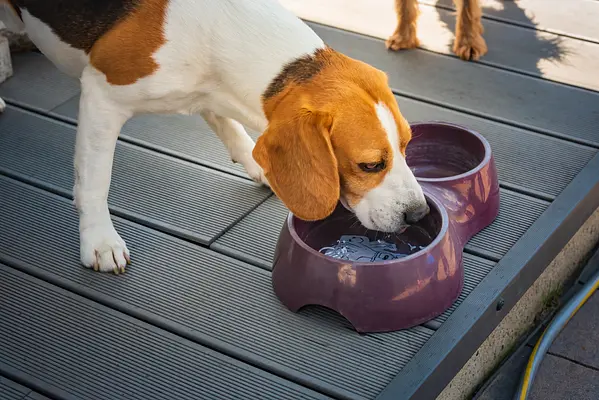As a new puppy owner, one of your top priorities is ensuring your furry friend stays healthy and happy. Proper hydration is essential for your puppy's well-being, and it's crucial to recognize the signs of dehydration early on. In this blog post, we'll discuss the common symptoms of dehydration in puppies and what you can do to keep your little one well-hydrated.
Why Is Hydration Important for Puppies?
Puppies are more susceptible to dehydration than adult dogs because their bodies are still developing and they have a higher water requirement per pound of body weight. Dehydration can lead to serious health issues, such as organ damage and even death if left untreated. That's why it's essential to monitor your puppy's water intake and be aware of the signs of dehydration.
Common Signs of Dehydration in Puppies
Lethargy and Weakness: If your usually playful and energetic puppy suddenly becomes lethargic and weak, it could be a sign of dehydration. Your puppy may be less interested in playing or may have difficulty moving around.
Sunken Eyes: Take a close look at your puppy's eyes. If they appear sunken or the surrounding area looks dry, it could indicate dehydration.
Dry Nose and Gums: A healthy puppy's nose should be wet and cool, and their gums should be moist and slick. If your puppy's nose and gums feel dry or sticky to the touch, it's a red flag for dehydration.
Loss of Skin Elasticity: Gently pinch the skin between your puppy's shoulder blades. In a well-hydrated puppy, the skin should snap back into place quickly. If the skin stays "tented" or takes longer to return to normal, your puppy may be dehydrated.
Excessive Panting: While panting is normal for dogs, excessive panting or difficulty breathing can be a sign of dehydration, especially in combination with other symptoms.
What to Do If You Suspect Your Puppy Is Dehydrated
If you notice any of the above signs of dehydration in your puppy, take action immediately:
Offer your puppy fresh, clean water and encourage them to drink. You can also try offering ice cubes or low-sodium chicken broth to entice them.
If your puppy is not interested in drinking or their condition doesn't improve, contact your veterinarian right away. Severe dehydration may require intravenous fluids and professional medical attention.
To prevent dehydration, always provide your puppy with access to fresh, clean water and monitor their water intake. Be especially vigilant during hot weather or after periods of intense play or exercise.
Using the "Doggy Time" App to Track Hydration
Keeping track of your puppy's hydration can be made easier with the help of the "Doggy Time" app. This app allows you to collaborate with family members or pet sitters to log your puppy's activities, including water intake, training progress, and more. The app also features smart alarms and scheduling to help you stay on top of your puppy's needs.
By monitoring your puppy's hydration and using tools like the "Doggy Time" app, you can ensure your furry friend stays healthy, happy, and well-hydrated. Remember, if you ever have concerns about your puppy's health, don't hesitate to consult your veterinarian for professional advice and guidance.






